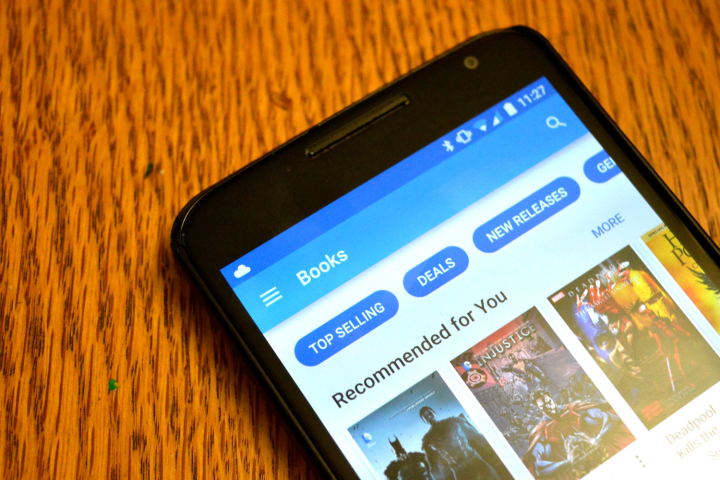
Google has updated Play Books with a new feature called ‘Discover,’ which basically looks at your reading history and determines other books that you might enjoy reading. The feature is available in 75 countries for Android, iOS, and the web.
“Google Play Books is the world’s largest ebookstore and offers readers like you smart technology that caters to your lifestyle — where you can start reading a book on your tablet at night and pick up where you left off the next day from your smartphone, as well as easily browse, skim, highlight and make notes,” said Google in a blog post.
The feature is launching today on Play Books for Android, and will be coming to iOS in the near future, although a specific date hasn’t been given just yet.
Google also offers Weekly Highlights, which will give you some of the best stories from the week. Not only that, but Google is also launching Google Play Editorial, which is aimed at showing off original articles from a variety of different authors. These will include interviews, essays, and more.
Google hasn’t really paid as much attention to Play Books as some of the other Play services, but it’s still an excellent ebook store for those interested in ebooks, and its nice to see that it’s getting a few extra features.
Of course, if Discover doesn’t give you enough recommendations, you can always check out our 100 best free ebooks list.
Editors' Recommendations
- The Google Pixel 8a is official. Here’s everything that’s new
- A new Google Pixel Tablet is coming, but it’s not what you think
- Google Messages vs. Samsung Messages: Which app should you use?
- Google just announced 8 big Android updates. Here’s what’s new
- Google just announced Android 15. Here’s everything that’s new

